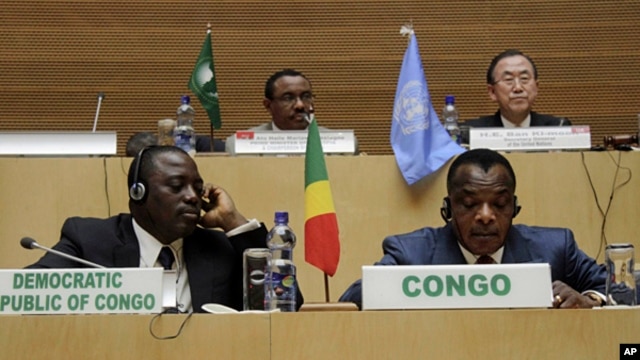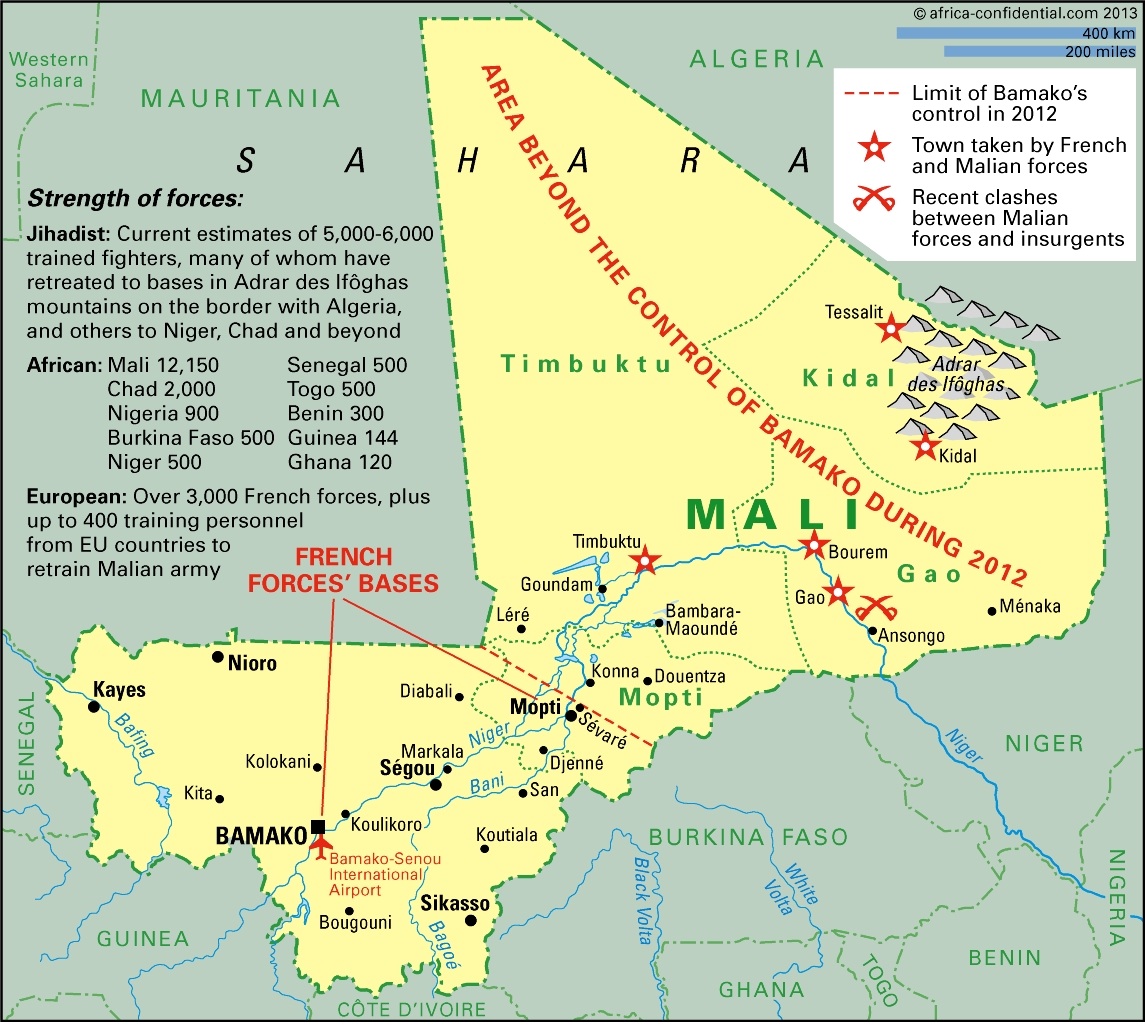Freedom returns to the storied city of Timbuktu
By By RUKMINI CALLIMACHI, Associated Press – 2 days ago
TIMBUKTU, Mali (AP) — On the morning French commandos parachuted onto the sand just north of this storied city and ended 10 months of Islamic rule, Hawi Traore folded up her veil. On the next day, she wore heels. On the day after, she put on her sparkly earrings, got her hair braided and tried her mother's perfume.
Finally on Thursday, the 12-year-old girl dared to dance in the streets, celebrating freedom from the draconian rules that were imposed by the al-Qaida-linked militants on this desert capital for much of the past year.
Four days since French special forces liberated Timbuktu, there is a growing sense of freedom — particularly among women. The speed with which women have claimed back their freedom underscores one of the advantages the French hold against an elusive enemy on unforgiving terrain: The population here has long practiced a moderate Islam rather than the extremism of the militants.
Although Timbuktu has long been a code word for the ends of the earth, until recently its women led a relatively modern existence, where they were not required to be covered and could socialize with men. That changed abruptly last year, when radical Islamists seized control of the northern half of Mali in the chaos after a coup in the distant capital.
When they first arrived, Hawi, a tall, fast-talking, sassy preteen girl, was just learning how to put on makeup. She learned the hard way to wear the toungou, the word for veil in the Songhai language. Her slender arm still bears the scar left by the whip of the Islamic police, her punishment for not properly covering up.
Her once-free life became increasingly restricted, as did that of her sisters and friends.
The Islamists showed no mercy, beating everyone from pregnant women to grandmothers to 9-year-old girls who weren't fully covered. Even talking to a brother on the front stoop of a woman's own home could get her in trouble.
Smoking, drinking and music were banned. So was playing soccer. The worst punishment was reserved for love outside the rules, and an unmarried couple who had two children out of wedlock was stoned to death in one northern Malian town.
Fatouma Traore lives on Street No. 415 in Timbuktu, the road that runs directly in front of the building where the Islamic Tribunal operated in what was once a luxury, boutique hotel. A leaflet left in the dirt in the courtyard set out eight rules for how women should wear the veil.
Rule No. 1 is that the fabric should cover the entire body. Rule No. 2 is that it can't be transparent. Rule No. 3 is that it needs to be colorless. And finally, Rule No. 8 states that a woman should not perfume herself after putting it on.
"We even bought a veil for this baby," said the 21-year-old Traore, picking up her 1-year-old niece and hoisting her on one hip. "Even if you are wearing the veil and it happens to slip off and you are trying to put it back on, they hit you."
The French military launched an intervention to oust the Islamists from power in northern Mali on Jan. 11, and rapidly forced their retreat from the major cities in less than three weeks.
The French arrived here before midnight on Monday in a platoon of 600 soldiers, accompanied by 200 Malian troops. They included paratroopers flown in from a base in Corsica, who landed in the north under the cover of darkness, as well as a convoy of 150 armored vehicles which simultaneously reached the town's western perimeter, according to a French military spokeswoman.
The Islamists were nowhere to be found. They had vanished into the desert, leaving behind a terrorized population and obstacles for the French.
A plane was parked sideways in the middle of the runway at the airport to prevent other aircrafts from landing. Satellite photos showed the runway was also covered with evenly spaced mounds of dirt, said France's Defense Ministry on Thursday. Fearing hidden mines, the French called in specialists with heavy equipment to clear the three-kilometer (1.8-mile)-long landing strip after the damage by the Islamists.
"They destroyed parts of the runway. They removed sections of the asphalt. They destroyed the control tower. We had to control it to make sure that it was not mined," said Capt. Frederic, in charge of communication in Mali for France's 3rd Mechanized Brigade, who could only be identified by his first name in keeping with French military protocol.
Once the airport was secure, the troops rolled into this city of earthen, dun-colored homes in a massive convoy.
They drew crowds so thick that at times, the armored personnel carriers came to a standstill. People waved homemade French flags sewn together from bolts of red, white and blue fabric. Hawi and her mother stood on the side of the road, screaming, "Vive la France!"
The ecstatic women greeting the French were still covered in the all-enveloping veils imposed on them by the former Taliban-inspired occupiers. But hours after watching the French arrival, Hawi went home, folded up her veil and stuffed it away in her closet.
That same day, she pulled out the traditional pagne worn by women in much of sub-Saharan Africa. The Islamists considered it indecent because it was colorful and revealed the shoulders, arms and upper back.
By Tuesday, she dared to wear a pair of heels — also haram, or "forbidden" by the Islamic regime.
By Wednesday, she had found a newly opened women's hair salon, where she had her hair braided for the first time in months. She opened her jewelry box and put on two bright cube-shaped earrings. Her mother pulled out her eyeliner.
It was on Thursday that they rummaged through their closet and found the envelope where they had hidden their Samsung phone's memory card.
The Islamists had banned music of all kinds, including radios. When they realized young people were still listening to music using earphones, they began policing phones. During the final stages of the occupation, even ringtones became haram. People could not figure out how to change their cellphone settings, so for months many simply placed their phones on silent or on vibrate.
On Thursday, Hawi and her mother took out the memory card with the songs of a musician, a native of a village just 45 kilometers from the city. They went into the street, held up the tiny Samsung phone like a boombox and danced as they pumped it into the air.
Like her daughter, Hawi's mother, Fatouma Arby, also has a scar — on her right wrist where the Islamic police lashed her after they found her standing outside her house. The Islamists had gradually expanded the public space where women were restricted from the town center, to the alleys blanketed in sand running like veins across Timbuktu, all the way to the threshold of their own homes.
They had even created a prison just for women the likes of Arby, a feisty, 40-something mother and tomboy who exulted Thursday in her release.
"It's been a very long time since I put on makeup," she said, running her finger under her eye to show off the line of black kohl accenting it. "I've put it on to make myself beautiful. So that men see me, and find me beautiful."
A man she knows, a distant cousin, called out her name. She ran over to him and teasingly pulled his arm, as he pulled her back.
It was a tug-of-war between two people who for nearly a year could not so much as touch.







